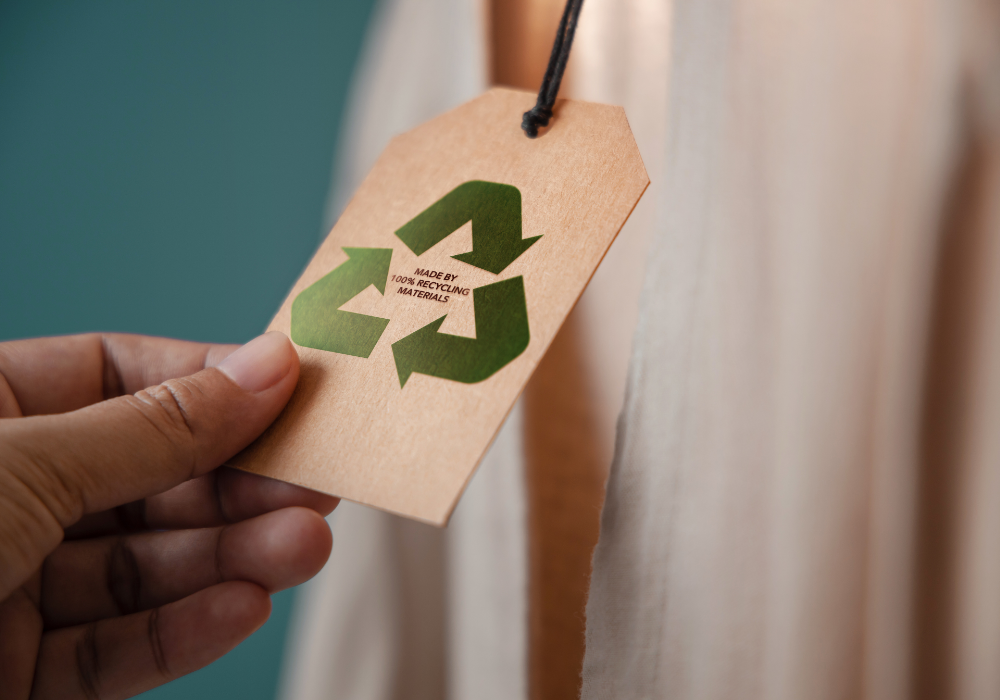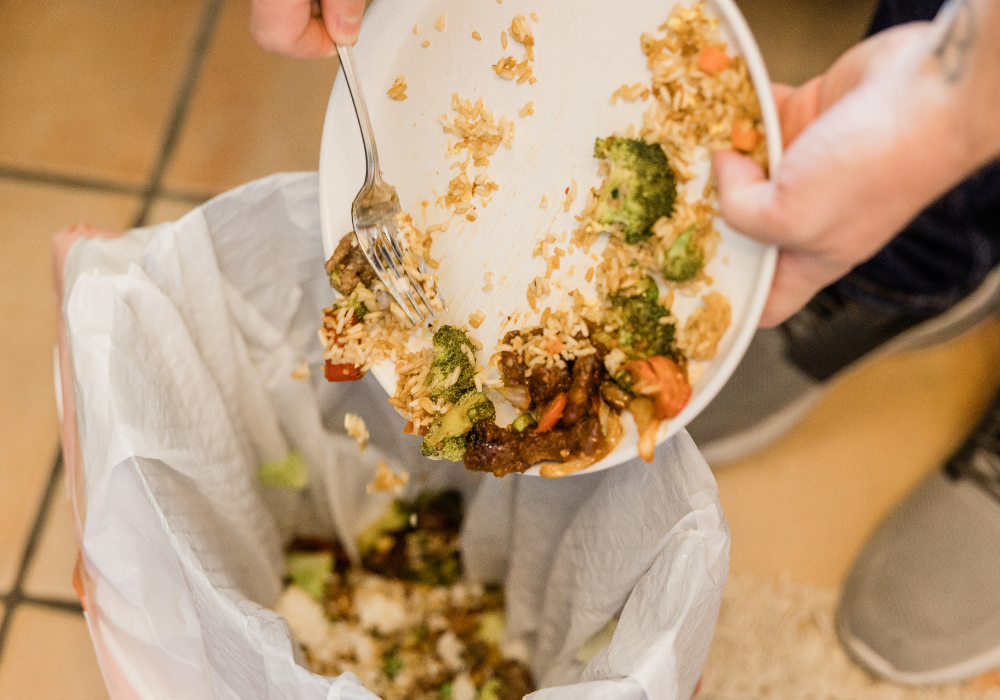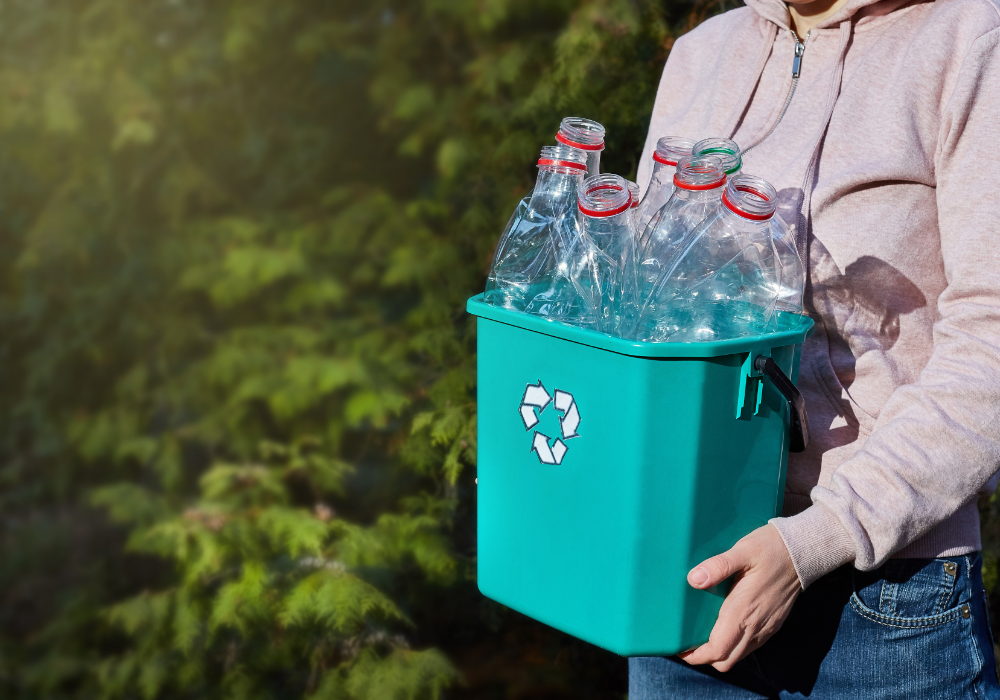Claiming to be sustainable doesn’t mean much if these habits are still in the mix.

Living an eco-friendly lifestyle isn’t just about swapping plastic straws for metal ones or carrying a reusable tote to the grocery store. Real sustainability means rethinking everyday choices—and a lot of self-proclaimed environmentalists are still falling into wasteful habits without even realizing it.
From supporting greenwashing brands to mindlessly scrolling on energy-draining devices, some behaviors contradict the very values people claim to uphold. Being truly sustainable isn’t about perfection, but awareness matters. The small, unnoticed habits add up, and sometimes, the biggest environmental damage comes from the things people do without thinking.
If sustainability is the goal, these 12 common mistakes need to go. Because no matter how many thrifted outfits or compost bins are in place, these habits are quietly undoing the good.
1. Shopping “sustainable” brands without checking for greenwashing.

Many companies love slapping “eco-friendly” on their packaging, but that doesn’t mean their practices actually help the planet. Greenwashing is everywhere, and plenty of supposedly sustainable brands are just using clever marketing to hide their environmental impact. Haleluya Hadero for The Associated Press reports that Italy’s antitrust watchdog is investigating the fast fashion giant Shein for potentially making misleading claims about its sustainability practices.
Truly eco-friendly choices require research—looking at third-party certifications, transparency reports, and a company’s full environmental track record. Buying a shirt made from “recycled materials” doesn’t mean much if the brand is still overproducing and underpaying workers. The only way to shop sustainably is to be a conscious consumer, not just a trusting one.
2. Letting food waste pile up while claiming to care about the planet.

Wasting food isn’t just bad for the wallet—it’s a major climate issue. Decomposing food in landfills releases methane, a greenhouse gas far more potent than carbon dioxide. Yet many self-proclaimed eco-conscious people still toss out leftovers, let produce rot in the fridge, or overbuy groceries that never get eaten.
Sustainability starts in the kitchen. Planning meals, storing food properly, and actually eating what’s purchased are some of the easiest ways to reduce environmental impact. Composting is great, but it doesn’t erase the resources wasted in growing, packaging, and transporting uneaten food.
Cutting food waste isn’t just about feeling good—it’s about taking real action to reduce unnecessary environmental harm. According to The Guardian journalists Bibi van der Zee and Damien Gayle, the United Nations has prioritized cutting methane emissions from waste, launching a new initiative endorsed by over 30 countries.
3. Relying on recycling to erase bad consumption habits.

Recycling feels like an easy fix, but in reality, it’s a flawed system. Most plastic doesn’t actually get recycled, and even recyclable materials often end up in landfills due to contamination or inefficiencies. Lucy Hodgman of the Times Union writes that only 5-6% of plastic in the United States gets recycled, exposing the inefficiencies in the current recycling system.
The key to real sustainability is reducing consumption and reusing materials whenever possible. Replacing single-use plastics with reusable alternatives, buying fewer packaged goods, and choosing products that are built to last will have a far bigger impact than simply hoping for recycling to work its magic.
It’s about changing the way things are consumed from the start—cutting down on the demand for products that need to be disposed of. Real change happens when habits shift away from excess, not when we assume recycling can fix everything.
4. Driving everywhere but still preaching about climate change.

Being passionate about sustainability loses credibility when a car is used for every single trip. Transportation is one of the biggest contributors to carbon emissions, yet many self-proclaimed eco-warriors rarely consider alternatives. Walking, biking, using public transportation, and carpooling aren’t just for extreme environmentalists—they’re practical, impactful choices. Even small changes, like combining errands into one trip or opting for an electric vehicle, make a difference.
Convenience shouldn’t always win out over sustainability, especially when reducing car dependency is one of the most effective ways to shrink a carbon footprint. Car culture is ingrained in society, but it’s time to rethink how much travel is really necessary and what eco-friendly transportation options exist in the area. Cutting back on car use can have a massive ripple effect on pollution levels and even traffic congestion.
5. Ordering takeout constantly and ignoring the packaging waste.

Single-use plastics are a major environmental issue, and takeout meals are one of the biggest culprits. Styrofoam containers, plastic utensils, and non-recyclable coffee cups pile up fast, yet many people who claim to be eco-conscious still order delivery multiple times a week without a second thought.
Sustainability means making smarter choices, even when convenience is tempting. Bringing reusable containers for takeout, requesting no utensils, or supporting restaurants that use compostable packaging are all easy fixes. Cooking at home more often is even better—not just for reducing waste, but for cutting down on the emissions tied to food delivery services. Every meal choice affects the planet, and takeout habits shouldn’t be exempt from sustainability efforts.
6. Ignoring the environmental cost of endless online shopping.

One-click shopping makes life easier, but the environmental cost is massive. Every package means excess shipping materials, transportation emissions, and often, unnecessary returns that create even more waste. Yet plenty of people who claim to be eco-conscious still rely on online shopping for everything, even when local options exist.
Being truly sustainable means shopping less and shopping smarter. Choosing slower shipping options, grouping orders together, and supporting local businesses can significantly reduce the footprint of online shopping.
The convenience of doorstep deliveries shouldn’t come at the cost of increased carbon emissions and excess packaging waste. A big part of being eco-friendly is choosing quality over quantity and reducing consumption overall. Shopping consciously—whether online or in-store—ensures that every purchase aligns with the values of sustainability.
7. Scrolling endlessly without realizing the hidden energy drain.

Social media, streaming, and cloud storage don’t seem like environmental issues, but the internet isn’t as invisible as it looks. Every video watched, photo stored, and file uploaded relies on massive data centers that consume enormous amounts of energy. Digital pollution is real, yet it’s often ignored in sustainability conversations.
Deleting old emails, reducing streaming quality, and limiting unnecessary cloud storage are all ways to cut back on digital waste. Even switching to a search engine that supports reforestation efforts (like Ecosia) can help offset the environmental cost of constant internet use. The online world has a footprint too—and ignoring it doesn’t make it go away.
8. Treating fast furniture like it’s not part of the problem.

Fast fashion gets plenty of criticism, but fast furniture is just as bad—if not worse. Cheaply made, disposable home goods contribute to deforestation, pollution, and massive landfill waste. Yet many eco-conscious consumers still furnish their spaces with trendy, low-quality pieces that aren’t built to last.
Sustainability means choosing quality over quantity. Buying secondhand, investing in well-made furniture, or even upcycling existing pieces helps prevent waste. Home décor shouldn’t be treated as disposable, especially when the environmental cost of replacing items every few years is so high. Even small changes, like opting for locally-made or sustainably-sourced furniture, can add up to significant reductions in waste. Instead of constantly buying new, focus on purchasing fewer items that truly stand the test of time.
9. Supporting mass tourism while claiming to travel sustainably.

Eco-friendly travel isn’t just about skipping plastic straws at the hotel—it’s about the entire approach to tourism. Many self-proclaimed sustainable travelers still visit over-touristed destinations, stay in chain hotels that exploit local resources, or take unnecessary short-haul flights without thinking twice.
Being a conscious traveler means choosing destinations responsibly, supporting local businesses, and considering lower-impact ways to explore. Opting for train travel instead of flights, staying in eco-lodges, and respecting local cultures and environments go a lot further than avoiding a plastic water bottle on vacation. Sustainable travel isn’t about appearances—it’s about real impact.
Making the right choices when it comes to travel can reduce carbon emissions, protect cultural heritage, and ensure that destinations stay vibrant and viable for future generations. True sustainability in travel means thinking beyond yourself.
10. Using “biodegradable” and “compostable” as an excuse for overconsumption.

Labels like “biodegradable” and “compostable” make products sound guilt-free, but they’re often misleading. Many compostable items require industrial composting facilities that aren’t widely available, meaning they still end up in landfills. And just because something is biodegradable doesn’t mean it disappears overnight—some materials take years to break down.
Eco-friendly living isn’t about finding loopholes—it’s about reducing waste in the first place. Choosing reusable items over single-use, understanding how different materials actually decompose, and avoiding unnecessary purchases all matter more than blindly trusting marketing labels.
Sustainability requires effort, not just clever packaging. Instead of leaning on fancy labels, the true eco-friendly approach is about making lasting changes to consumption habits and seeking out long-term, sustainable solutions. Every action, from what’s bought to how it’s disposed of, has an impact.
11. Hoarding “eco-friendly” products instead of actually using them.

Buying reusable straws, beeswax wraps, and tote bags doesn’t automatically make someone sustainable—using them does. Plenty of people stock up on eco-friendly alternatives but still default to disposable options out of habit. A drawer full of metal straws means nothing if plastic ones are still in use.
Sustainability isn’t about collecting green products—it’s about changing behaviors. Using what’s already owned, avoiding unnecessary purchases, and making long-term shifts in habits are what truly make a difference. An unused tote bag is just clutter, not a solution. Sustainability is built on consistency—whether it’s always using that reusable water bottle, remembering to bring your own shopping bag, or investing in durable, eco-conscious products that actually get used. The focus should be on sustainable actions, not just accumulating eco-friendly products.